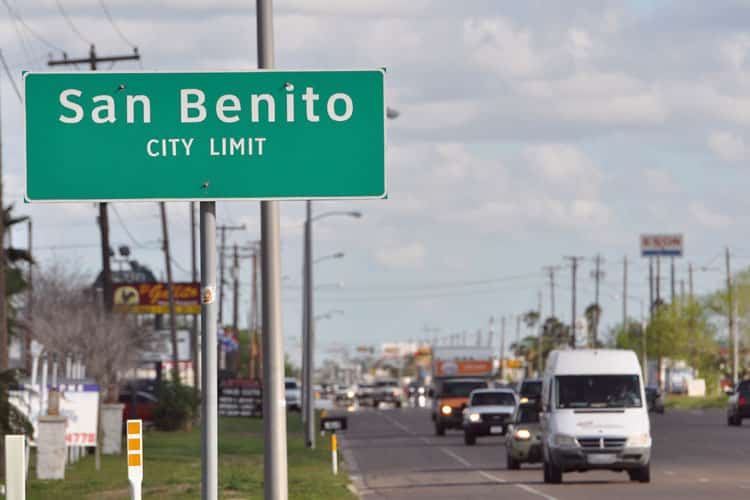SAN BENITO — City officials are ordering residents to follow guidelines set to cut water usage amid the deepening drought that’s lowered the area’s reservoirs to their lowest levels in more than 10 years.
Earlier this week, city commissioners called on residents to take measures outlined as part of the second stage of the city’s water conservation plan after levels dropped below 25 percent at the Falcon and Amistad reservoirs.
Violators face misdemeanor charges, with fines ranging from $50 to $200 a day.
During a meeting, City Manager Manuel De La Rosa said restrictions will go into effect at midnight Saturday.
“I plan to implement … the city’s emergency water conservation plan,” he told commissioners during Tuesday’s meeting. “Based on the recent levels at the Falcon and Amistad reservoirs, Stage 2 of the ordinance is applicable. We will be publishing notice taking effect like at Saturday at midnight. We need to be prepared to not have enough water that we will have to minimize its consumption by everyone that consumes our water.”
Holding off surcharges, push-water charges
So far, he’s not calling on residents paying surcharges for water use, De La Rosa said.
However, drought conditions could force the city to buy “push-water,” or water used to generate a steady flow through the miles of canals and resacas running from the Rio Grande to the city’s water plants, De La Rosa said.
“There will be additional charges should we have to buy emergency water, or push-water as phased in the agreement, and again, that is only if I come back to you for approval and we work out a rate,” he said. “Hopefully, this water crisis doesn’t worsen.”
Lowest levels since 2011
On Wednesday, water levels stood at 9.8 percent capacity at Falcon and Amistad reservoirs, their lowest levels since 2011, Geoffrey Bogorad, a meteorologist with the National Weather Service in Brownsville, said.
Restrictions
Stage 2 of the city’s water conservation plan, part of an ordinance, calls on officials and residents to cut down on water usage until reservoir levels recover.
“All municipal operations shall be placed on mandatory conservation,” the plan states.
The plan bars watering from 10 a.m. to 6 p.m., with dip irrigation and other sprinkler systems allowed.
“Washing of personal automobiles, trucks, trailers, boats, airplanes and other equipment may be done only with a hand-held hose equipped with a positive shut-off nozzle or with a hand-held bucket or watering not to exceed five gallons in capacity between the hours of 6 p.m. to 9 p.m.,” the plan states.
“The use of water to wash down any sidewalk, walkways, driveways, parking lots, tennis courts or other hard-surfaced areas or any building or structure is prohibited except to alleviate health or fire hazards,” it states. “The use of water for dust control is prohibited expect for health concerns. The use of water for all privately and publicly owned swimming pools, wading pools, Jacuzzi pools, hot tubs and like or similar uses is prohibited. The use of city water to place new agricultural land into production is prohibited.”





